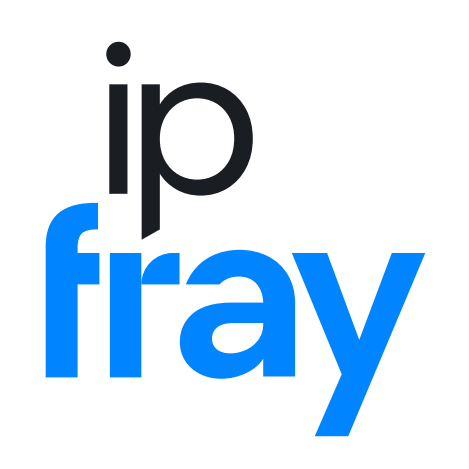Context: Huawei is presently enforcing patents essential to the WiFi 6 standard in Germany against Amazon, Netgear and German router maker AVM. The three implementers have the choice to take a bilateral license from Huawei or a pool license from Sisvel if they wish to license more WiFi 6 patents than just Huawei’s. Recent court wins by Huawei over Amazon and AVM validate the license terms offered (December 26, 2023 ip fray article).
What’s new: On Tuesday (January 30, 2024), Netgear filed an antitrust and racketeering complaint against Huawei with the United States District Court for the Central District of California (case no. 2:24-cv-824). Netgear seeks damages and an injunction, but also declaratory relief, such as with respect to the alleged exhaustion of Huawei’s patents under a license agreement with Qualcomm.
Direct impact: Netgear is trying to prove allegations concerning standardization-related fraud and racketeering that no one has been able to prove even in a remotely similar case in recent history. It is unlikely that the case will move the needle, other than driving up litigation expenses. The likelihood of Netgear being deemed an unwilling licensee in other jurisdictions has, however, just increased.
Wider ramifications: The case is just the latest example of companies trying to capitalize on a Chinese bogeyman type of narrative. Sometimes Chinese companies are portrayed as reckless infringers, and in cases like this as patent holders overleveraging their rights. In Huawei’s case, any such categorization fails the initial plausibility test: there is no other major technology company in the world where inbound and outbound licensing revenues are pretty much at the same level.
If there was a literary genre named IP fiction novel, the length (115 pages), the narrative and the writing style of Netgear’s complaint would probably meet the definition:
It’s interesting that McKool Smith represents Netgear. That’s the same law firm that (together with Alston & Bird) is representing Ericsson against Lenovo. It appears, however, that there is no overlap as the lawyers in both cases are from different offices. There may be a so-called Chinese Wall inside the firm.
Should Netgear seek an antisuit injunction, that might require McKool Smith to self-contradicting positions on the legal standard for that type of injunctive relief. Infringement actions have been pending in Germany for some time. Therefore, an anti-antisuit injunction by a German court would be a given in that scenario.
Interestingly, Netgear mentions a U.S. complaint brought by German company ADVA against Huawei. That dispute settled after a few months, and an anti-antisuit injunction was the only noteworthy decision to have come down by then.
The narrative is that Huawei is allegedly an extremely evil Chinese company with incredible criminal energy, defrauding and extorting everyone who comes along the way. The allegation that someone violated the antitrust laws by participating in standardization and making FRAND licensing promises without intending to keep them goes back to an old Broadcom v. Qualcomm case and has not been proven in any recent case. In Huawei’s case it makes no sense that a company which was a net licensee at the relevant time would have had such an agenda. It was only for geopolitical reasons that Huawei’s product business took a major hit, but even now, Huawei is still a large-scale implementer that pays out about as much in patent royalties to other right holders as it receives.
It is even harder to see how a SEP holder with a licensing business would meet the legal definition of “racketeering” under the RICO Act. But the complaint “alleges RICO Conspiracy violations” involving three different Huawei entities and points to “the Superseding Indictment against Huawei by the Department of Justice in the Eastern District of New York.” That one was filed in February 2020 under President Donald Trump. It was a political initiative. Also, the patent assertions at issue at the time were rather different from what’s going on now with respect to WiFi 6.
Nowhere does Netgear’s U.S. complaint mention that Huawei’s patents could also be licensed alongside other WiFi 6 SEP portfolios by licensing Sisvel’s WiFi 6 pool.
Netgear’s complaint lists the following infringement cases:
- Dusseldorf Regional Court, case no. 4c O 8/22, patent-in-suit EP3337077 (complaint filed on March 2, 2022)
- Dusseldorf Regional Court, case no. 4c O o/22, patent-in-suit EP3143741 (complaint filed on March 2, 2022)
- Jinan Intermediate People’s Court, case no. (2022) Lu 01 Zhi Min Chu No. 407, patent-in-suit ZL 201811536087.9 (complaint filed on May 10, 2022)
- Jinan Intermediate People’s Court, case no. (2022) Lu 01 Zhi Min Chu No. 408, patent-in-suit ZL 201810757332.2 (complaint filed on May 10, 2022)
- Unified Patent Court, Munich Local Division, case no. 459771/2023, patent-in-suit EP3611989 (complaint filed on July 3, 2023); extended on November 23, 2023 through the addition of EP3678321
Relative to the size of Huawei’s portfolio, that’s a rather limited number of infringement actions.
Netgear is an impressive company, but its U.S. lawsuit against Huawei does not appear capable of moving the needle in licensing negotiations. It’s hard to imagine that there won’t be a license agreement before a Los Angeles jury trial would take place.
